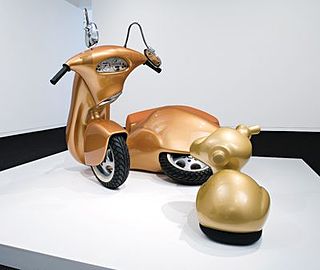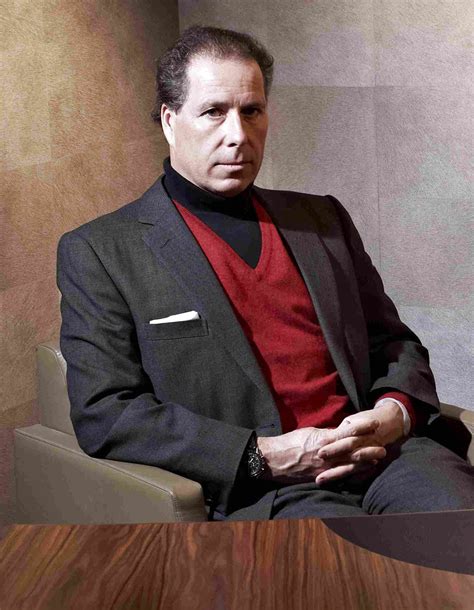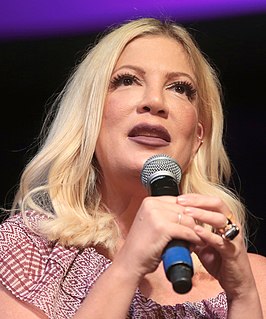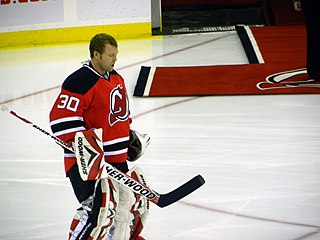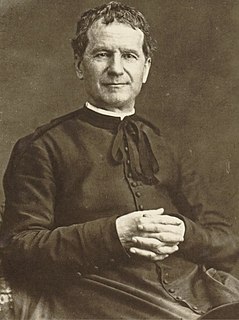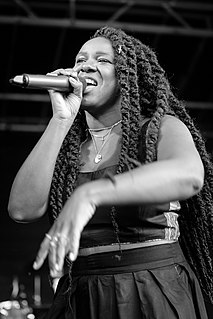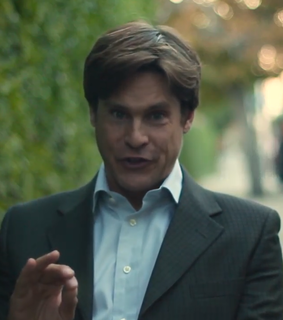A Quote by Patricia Piccinini
In the studio we spend a lot of time working our what materials will work best and also last. We do tests and come back to them years later to see how they are still performing, and this leads our decisions.
Related Quotes
Design is important. I spend much of my working life as a designer. But how can you design for materials if you don't know what they can do? The feel of them, the possibilities, the capabilities? These are things you learn only by working with materials all the time. Frankly, a university degree is not much help in that.
Five years from the date of the attack that changed our world, we've come back to remember the valor of those we lost-those who innocently went to work that day and the brave souls who went in after them. We have also come to be ever mindful of the courage of those who grieve for them, and the light that still lives in their hearts.
Of course, we're so lucky to be in a time where that's not our reality anymore. I just thought it was very interesting to go back to that time now, and to look at all of these issues that are still relevant today, but just in such a different way, and to see how we approach them and try to overcome them. Yeah, we've come a long way with medicine and women's health in the Western world, but in a lot of parts of the rest of the world, that's still a huge issue.
I love working together with Dean McDermott. We love - we actually are a couple that do everything together even when we're not working. So for us, this is the best venue for our relationship because we get to spend all our time together. And I think for other couples, you know, perhaps they didn't spend all their time together and then all of a sudden they were stuck together all the time, and they couldn't make it work. But for us it works.
I work for free all the time, as a writer but also as an activist. The decisions we have to make as individuals are really fraught but also can be really wonderful and we're all navigating this reality to the best of our abilities. But, again, I wanted to take a step back and look at the broader context.
I know my time will come soon enough, but I will not dwell on it. What is the purpose? We might as well dwell on the work of our teeth or on the mechanics of our walk. It is there, it will always be there, and I don't intend to spend my glorious hours looking over my shoulder to see death's icy face.
Health is God's great gift, and we must spend it entirely for Him. Our eyes should see only for God, our feet walk only for Him, our hands labor for Him alone; in short, our entire body should serve God while we still have the time. Then, when He shall take our health and we shall near our last day, our conscience will not reproach us for having misused it.
How we spend our days is, of course, how we spend our lives. What we do with this hour, and that one, is what we are doing. A schedule defends from chaos and whim. It is a net for catching days. It is a scaffolding on which a worker can stand and labor with both hands at sections of time. A schedule is a mock-up of reason and order—willed, faked, and so brought into being; it is a peace and a haven set into the wreck of time; it is a lifeboat on which you find yourself, decades later, still living.
I really believe that, in 500 years, we will still remember the International Space Station, because it will have been the first time, really and truly, that nations put a lot of money, brains, resources, and effort together to build something peacefully, and to work together for the sole and unique purpose of furthering our knowledge and bringing it back to Earth for our mutual good.
When we build ... let it not be for present delights nor for present use alone. Let it be such work as our descendants will thank us for, and let us think ... that a time is to come when these stones will be held sacred because our hands have touched them, and that men will say as they look upon the labor, and the wrought substance of them, See! This our fathers did for us!
India just went 3 years with no cases [of polio]. Pakistan is our toughest location right now because some parts of the Taliban have not allowed vaccinators to come in and have even attacked vaccinators. We are hopeful this will get resolved since no one wants their kid to be paralyzed. I spend a lot of time making sure the polio campaign is doing the best it can. We have great computer models that help guide our activities.
Performing is really close to being in studio but performing takes over because being in the studio is two things; the first thing is that it is really beautiful to improvise and jam, but afterwards it becomes hard because it's very rare that a song will come together quickly. Most of the time it's back and forth and trial and error. You start questioning whether the song is good or not. So that can be quite tough.
We are unlikely to spend our last moments regretting that we didn't spend enough of our lives chained to a desk. We may instead find ourselves rueing the time we didn't spend watching our children grow, or with our loved ones, or travelling, or on the cultural or leisure pursuits that bring us happiness.
